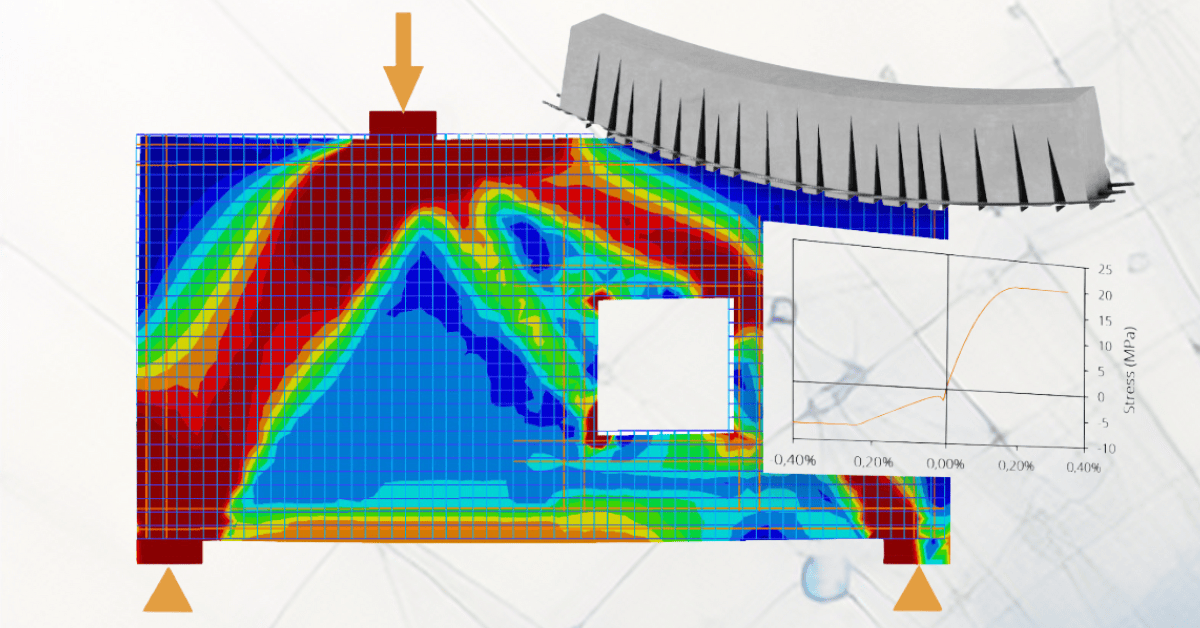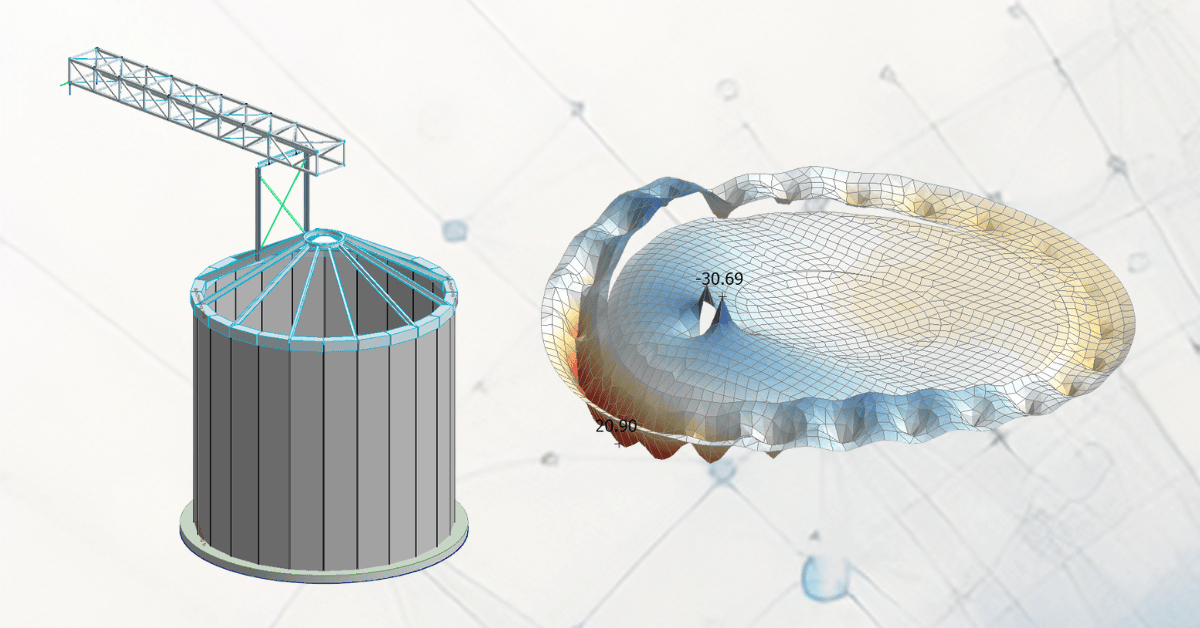Reinforced Concrete Design
The Reinforced Concrete Design Software, FEM-Design, is a powerful design tool to help you design both Reinforced Concrete (RC) and Precast Concrete structures.
The reinforced concrete design is complete, simple and fast regardless of whether you have examined objects in a complete 3D modelling environment, or element by element in a 2D view.
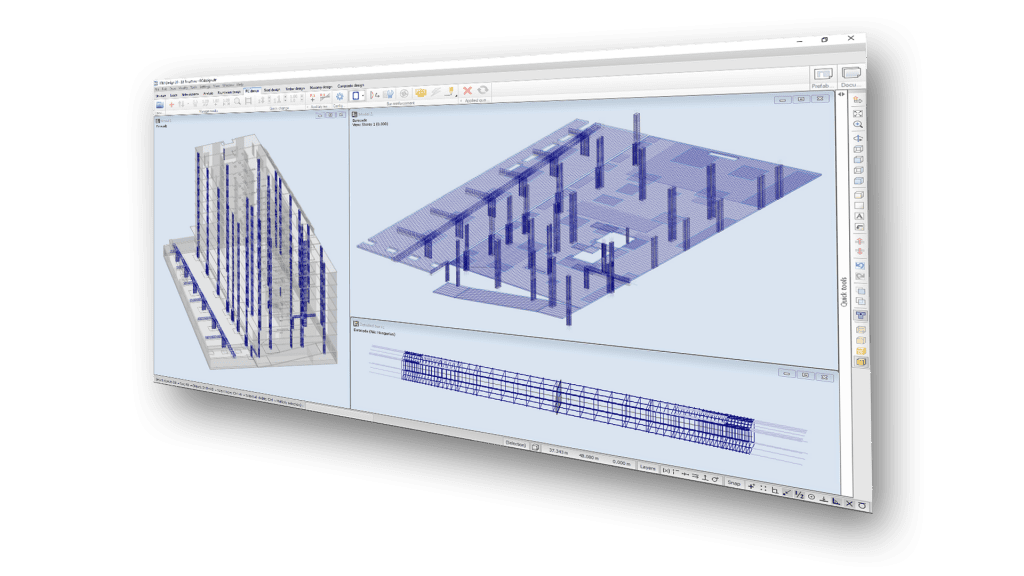
Reinforced Concrete Bar Design
Reinforced Concrete Shell Design
Different kinds of detailed design results of RC shells, such as required and missing reinforcement, shear capacity, shell buckling and crack width are providing feedback about the design capacity. These unique results are supplemented with Utilisation results, which aim to consider all the available results for RC shells. They are available for each load combination, maximum of load combinations and maximum of load groups. We can also set where to consider compressed reinforcement or non-shear regions.
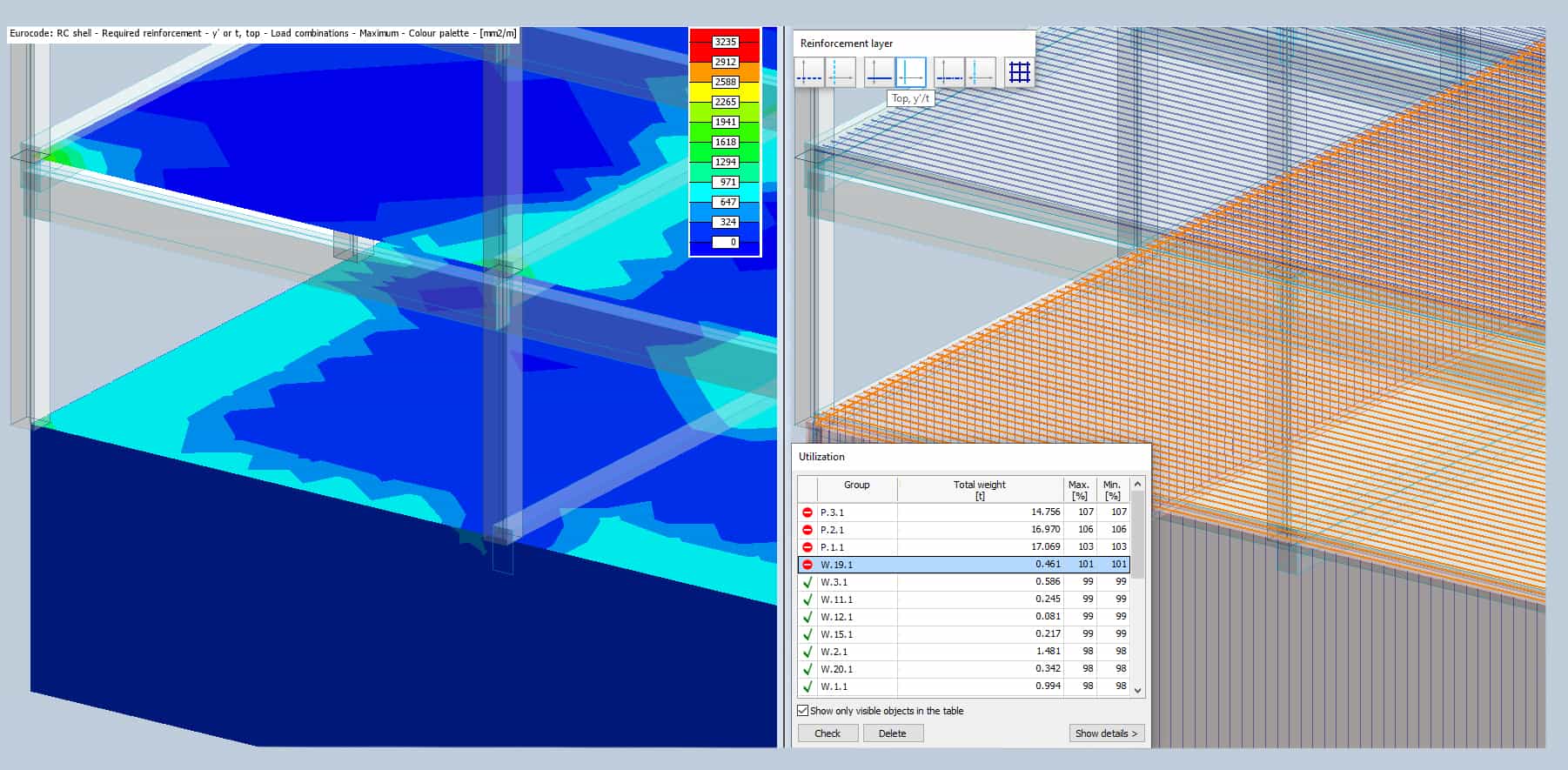
Reinforced Concrete Cracked Section Analysis
Cracked-section analysis of RC shells and bars calculates displacement based on the cracked state and designed reinforcement of objects and an iteration mechanism. Considering elements, crack effect is a non-linear calculation, loading the structure in load steps and modifying the stiffness in every step to generate more and more cracks.
Concealed Bar Design
Concealed bar is a new RC design object that allows for designing certain parts of a shell as a bar. For example, a wall region over a door opening can be considered as a concealed beam. Manual and automatic design process for concealed bars is the same as for individual RC bars. Listed tables and displayed results are also similar, but concealed bar’s internal forces – derived from the shell’s internal forces – are also listed and displayed.
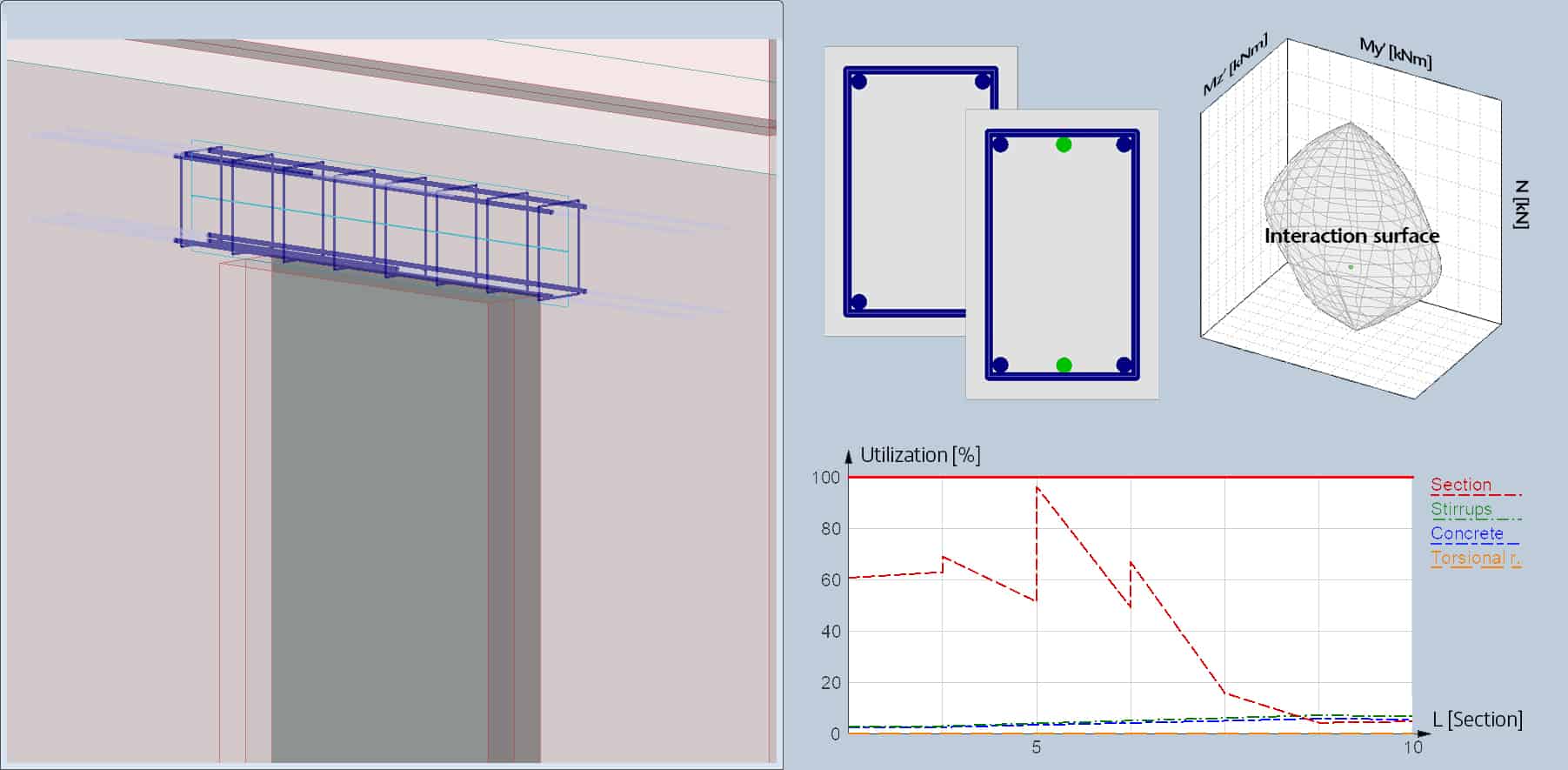
Punching Reinforcement Design
Punching check and design can be done according to Eurocode 2. The punching regions are automatically defined by the program at the plate–column intersections and wall ends, or you can define them manually.
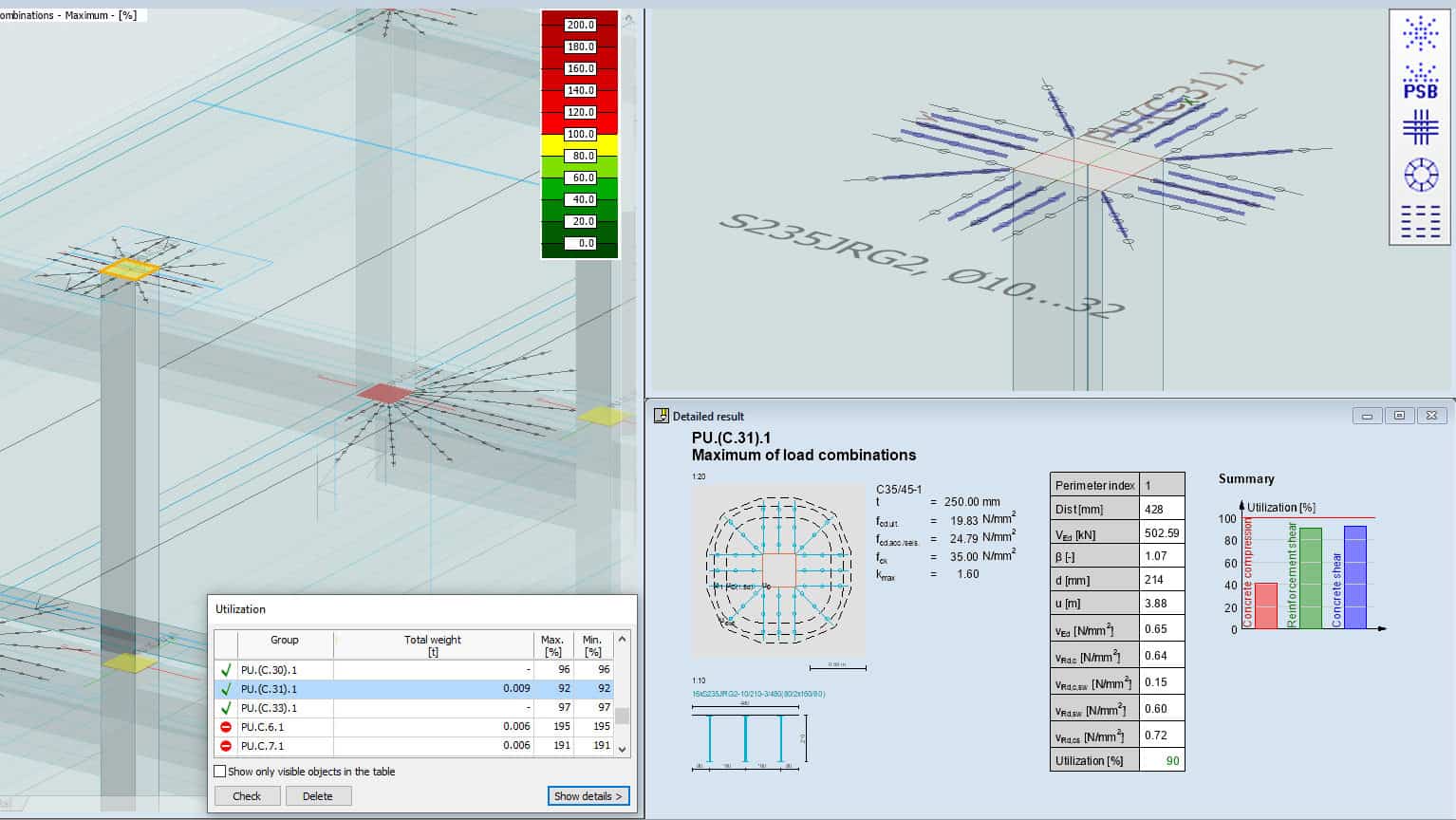
Precast Concrete Design
The FEM-Design software also has all the tools you need to analyse and design precast concrete structures.
The key to good analysis results in precast concrete lies in the connection conditions and types. Defining both elastic and plastic connections is an easy task in FEM-Design. All connection and support components can be set to “infinite” rigid, semi-rigid or free.
Benefits of using the FEM-Design Concrete Design Module
Detailed Design Checks to Eurocode 2
Pick a concrete member of a complex mixed structure and check or optimise its geometry and reinforcement according to Eurocode 2 and National Annexes.
Limitless Analysis and Design Features
Let’s highlight some enhanced features: support environment as non-linear soil, non-linear elastic calculation, plastic analysis, cracked-section analysis, second-order analysis, stability and dynamic check, consideration of imperfection, earthquake and fire effect.
Detailed Documentation Reporting
Numerous documentation possibilities are available for reinforced concrete design and check. Graphs, images, equations, tables and texts can build complete documentation in unique styles and for printing it as PDF, editable Word doc. format, Mathcad input or hard copy.
Versatile Dimensioning of Columns & Beams
FEM-Design designs and dimensions columns and beams either with an easy-to-use reinforcement editor or fully automatically, considering anchoring and second-order effects and other essential inspections in accordance with the standard.
Why wait? Download an automated 2 x week free trial of FEM-Design and get started today!
Calculations performed according to:
Euro Code
Belgian National Annex
British National Annex
Danish National Annex
Dutch National Annex
Estonian National Annex
Finnish National Annex
German National Annex
Hungarian National Annex
Latvian National Annex
Norwegian National Annex
Polish National Annex
Romanian National Annex
Spanish National Annex
Swedish National Annex
Turkish Seismic Code
Languages supported:
English
Finnish
French
Dutch
Hungarian
Polish
FEM-Design Wiki
Full details on the RC Design and the theory can be found on the FEM-Design Wiki by clicking here.
FEM-Design Blog
Art and Engineering at ARoS Dome: Optimising Concrete Reinforcement with FEM-Design
The Dome installation at the ARoS Art Museum in Aarhus, Denmark, required intricate engineering solutions. Mads Suikkanen, a structural engineer at COWI, was tasked [...]
Top 7 FAQ about the plastic shell model in FEM-Design
Earlier this year, we introduced plastic analysis as a material non-linearity module in FEM-Design 23. By using the plastic shell model in FEM-Design to [...]
Using the new non-linear plastic shell for evaluating existing structures
A typical situation you run into as an engineer is checking the capacity of an existing structure due to increased loading. Using the plastic [...]
